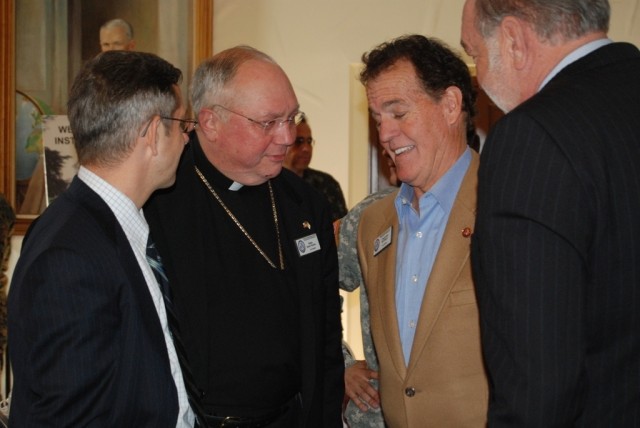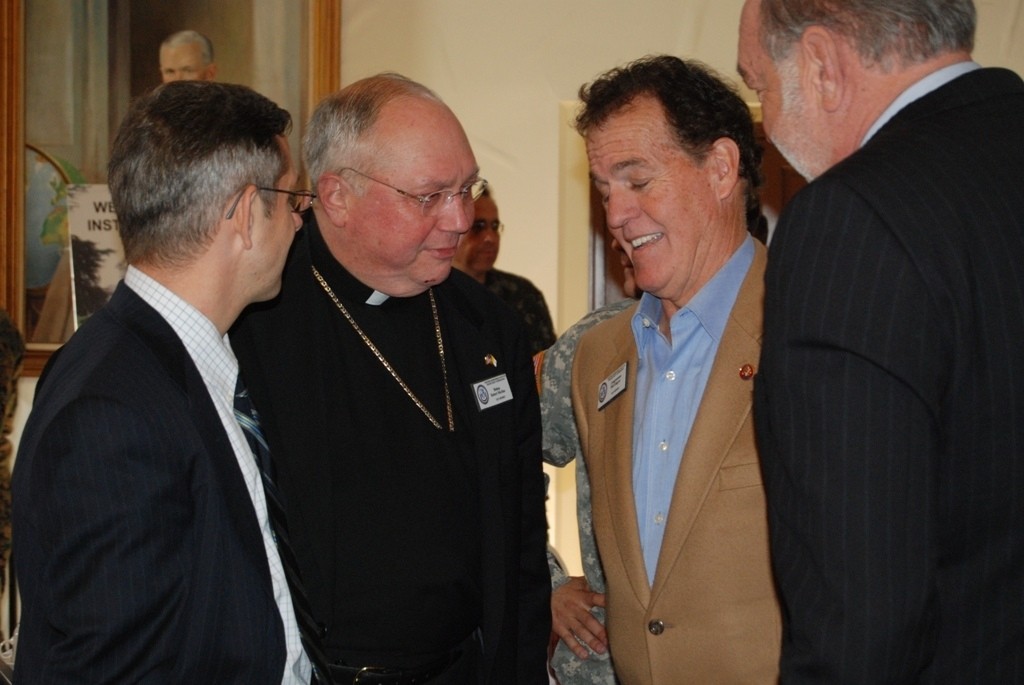
FORT BENNING, Ga. (Dec. 15, 2008)-The federal oversight committee known as the Board of Visitors for the Western Hemisphere Institute for Security Cooperation met here Dec. 5 to discuss engagement strategies for a new Congress and the way ahead for WHINSEC.
The board heard from U.S. Northern Command, U.S. Southern Command and from the commandant of WHINSEC on its achievements since the previous board meeting in June.
Changes for WHINSEC started with leadership. The commandant, assistant commandant and two other key positions came to the institute in the past six months.
Chairman of the Board Bishop Robert Morlino opened the meeting and gave board member U.S. Rep. Phil Gingrey (R-Ga.) an opportunity to provide remarks. Gingrey spoke of the challenges and opportunities in Congress to bring attention to WHINSEC and inform new members of the institute\'s mission.
WHINSEC Commandant Col. Felix Santiago built on the theme of new leadership at the institute by examining the current environment, discussing what the institute has done and highlighting initiatives that will expand educational offerings.
Michael Kuiken, representing Sen. Carl Levin on the panel, suggested that more emphasis should be given to "train-the-trainer" aspects of institute courses, pointing out that the U.S. leadership expects these leaders to pass lessons along within their organizations.
Robert Rodriguez, attending the meeting on behalf of Secretary of the Army Pete Geren, focused on finding ways to take credit for accomplishments by developing metrics to evaluate effects of training and education.
U.S. Training and Doctrine Command's Maj. Gen. Abraham Turner expressed great enthusiasm for a proposed Senior Enlisted Advisor Course and offered the distributed-learning resources of TRADOC to assist making portions or complete WHINSEC courses available online.
The first presentation to the board was by Ambassador Paul Trivelli the first civilian deputy commander of U.S. Southern Command.A,A Trivelli began his presentation with a dramatic reminder of how governments have evolved in the Western Hemisphere in the past 31 years. In 1977, only a few Latin American countries were led by elected civilian leaders.A,A Now all are, with the exception of Cuba.A,A He said this should, by itself, "make the case for WHINSEC," referring to the institute's emphasis on teaching the democratic principles of respect for human rights and civilian authority over the military.
Trivelli concluded by saying that the training at WHINSEC contributes greatly to SOUTHCOM partnerships with neighboring countries.
Morlino said that there is a special need right now for all parties who have an opportunity to testify on behalf of the institute. He referred to the new Congress, with many new members who are unfamiliar with the institute, who may be called upon to cast votes affecting its operation.
Dr. Biff Baker, representing Air Force Gen. Gene Renuart of U.S. Northern Command, gave an update of NORTHCOM's recent activities, saying that WHINSEC "has been absolutely essential to [NORTHCOM's] success." Baker said that in 2008, the U.S. provided training to as many Mexican students as in all of 2003-2007. He specifically mentioned a mobile training team visit to Mexico which presented a course for Counter Narco-Terrorism Information Analysts. As a result of this training, NORTHCOM received overwhelmingly positive feedback from the Mexican government.
Before closing the meeting, the board re-elected Morlino as its chairman for the coming year, and Victor Bonilla as the vice-chairman. The next meeting is scheduled June 12, 2009, in Washington, D.C.

Social Sharing